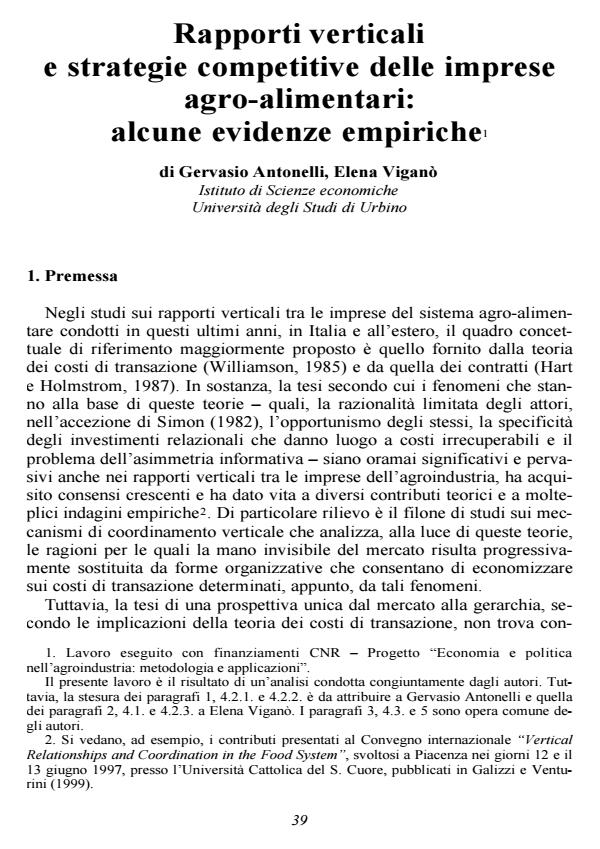Rapporti verticali e strategie competitive delle imprese agro-alimentari: alcune evidenze empiriche
Titolo Rivista ECONOMIA AGRO-ALIMENTARE
Autori/Curatori Gervasio Antonelli, Elena Viganò
Anno di pubblicazione 1 Fascicolo 2000/1 Lingua Italiano
Numero pagine 29 P. Dimensione file 104 KB
DOI
Il DOI è il codice a barre della proprietà intellettuale: per saperne di più
clicca qui
Qui sotto puoi vedere in anteprima la prima pagina di questo articolo.
Se questo articolo ti interessa, lo puoi acquistare (e scaricare in formato pdf) seguendo le facili indicazioni per acquistare il download credit. Acquista Download Credits per scaricare questo Articolo in formato PDF

FrancoAngeli è membro della Publishers International Linking Association, Inc (PILA)associazione indipendente e non profit per facilitare (attraverso i servizi tecnologici implementati da CrossRef.org) l’accesso degli studiosi ai contenuti digitali nelle pubblicazioni professionali e scientifiche
The goal of the present study is to examine the extent and the nature of vertical coordination between small and medium food firms and their agricultural inputs suppliers. In particular, we attempt to verify the extent to which single solution depends upon organisational structures, innovative processes and market strategies. To do this, in the first part of the paper, the main elements of the vertical integration and its causes are presented and discussed, with particular attention to the implications for the agro-food system. A theoretical grid is used to interpret, in the second part of the paper, the behaviour of firms. The study has been carried out by means of a survey. A questionnaire was given to a sample of firms operating in the food industries of the region Marche in the sectors of processing pork and poultry meat as well as in wine production. The results show in recent years a growing concern in all of the cases considered on contractual relationships with the suppliers of raw materials, mainly farms. Although these results highlight different solutions across different industries and across the firms of the same industry, in all the cases they show as vertical coordination tends to represent a reference scheme for the management of quality at various stages of the supply chain. In particular, the paper shows that the growing emphasis of consumers on quality and food safety has led to the development of marketing relationships with suppliers of agricultural products. Such a relationship, built with "selected" groups of suppliers, relies mainly on trust and incentives the growth of cooperative solutions which allow to reduce the cost of transactions. Furthermore, such a cooperative solution enables the firms to adjust their offering to changing market environment and to develop competetive strategies based on higher quality and other quality characteristics perceived.;
Gervasio Antonelli, Elena Viganò, Rapporti verticali e strategie competitive delle imprese agro-alimentari: alcune evidenze empiriche in "ECONOMIA AGRO-ALIMENTARE" 1/2000, pp , DOI: